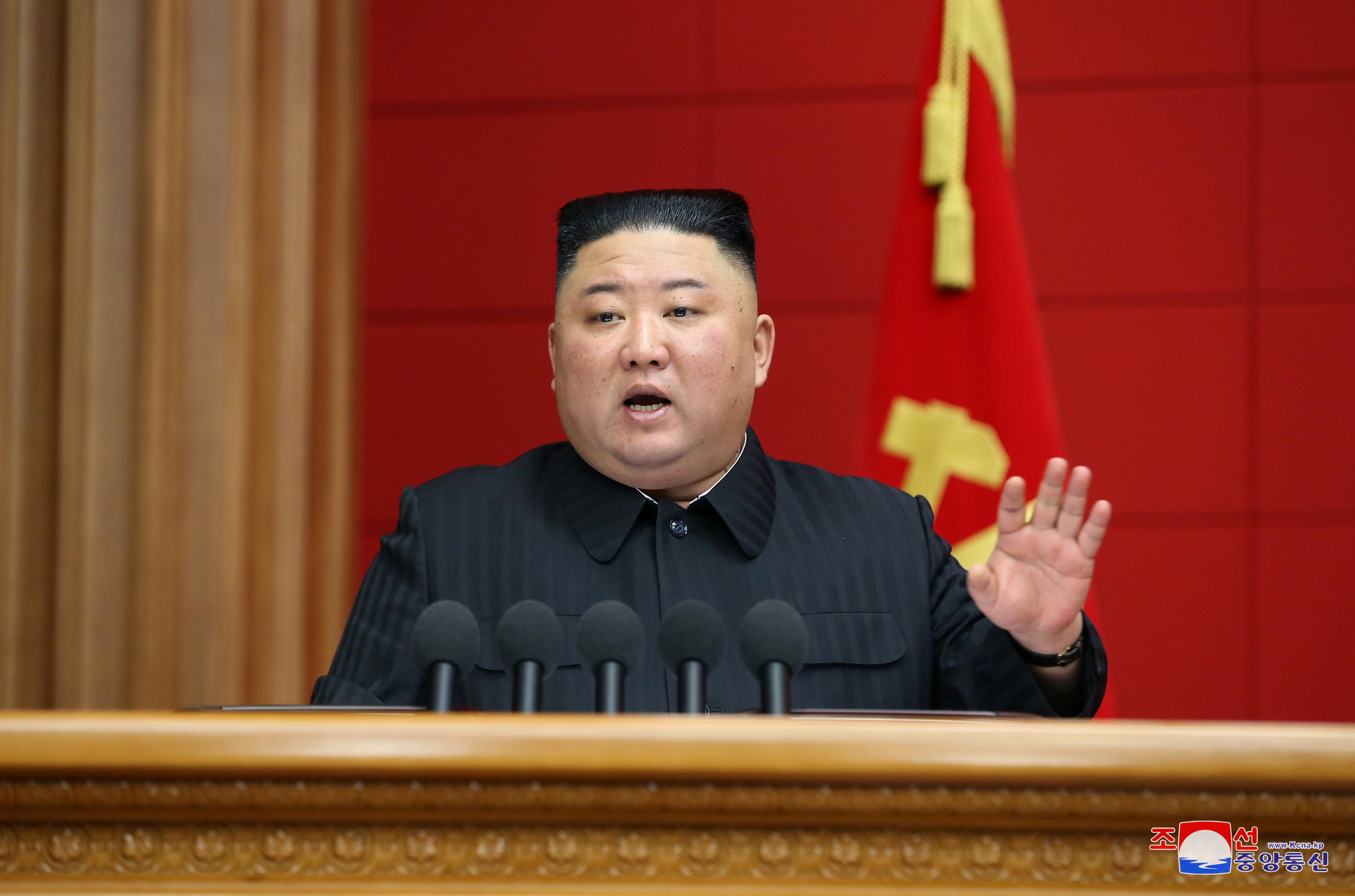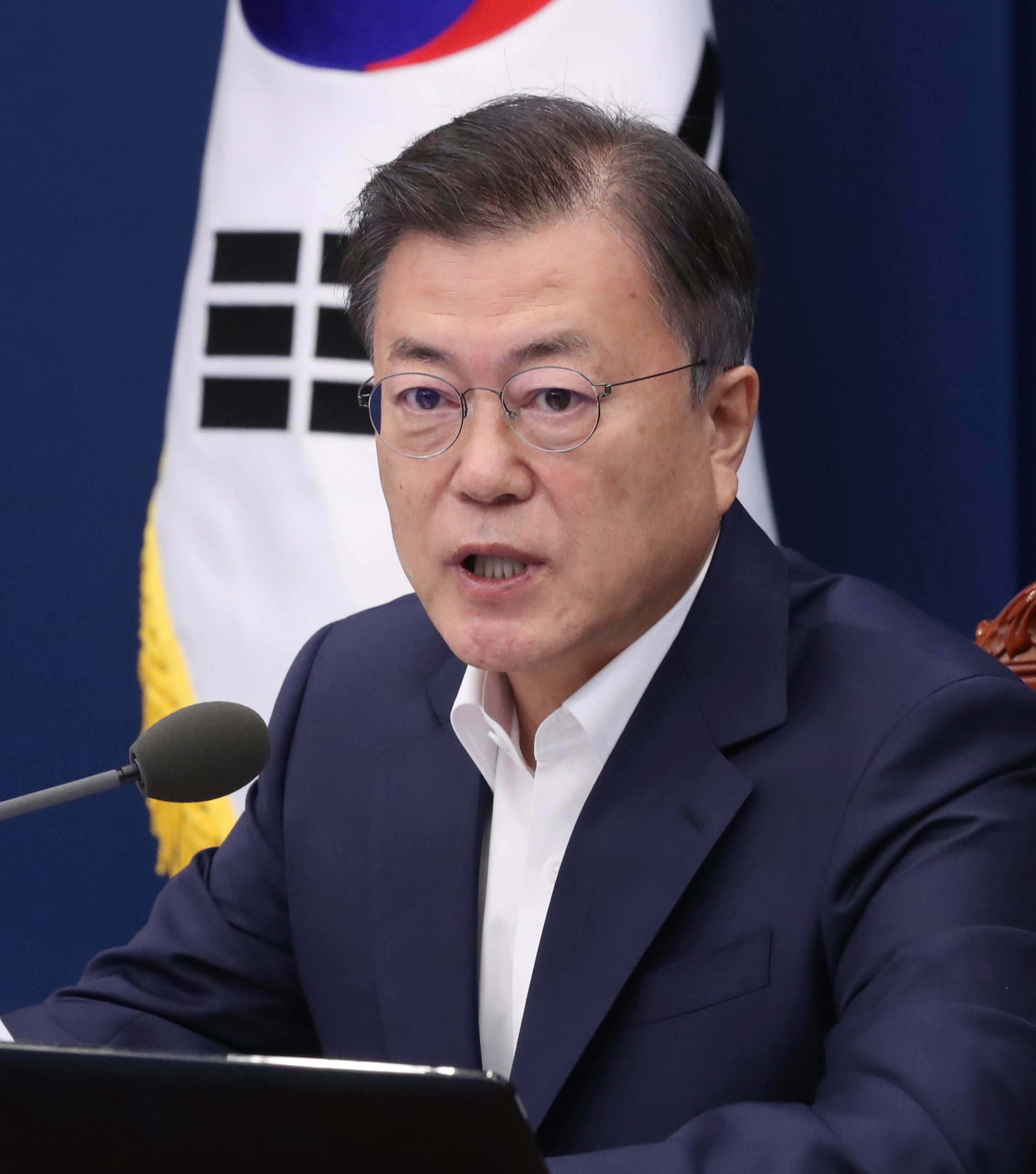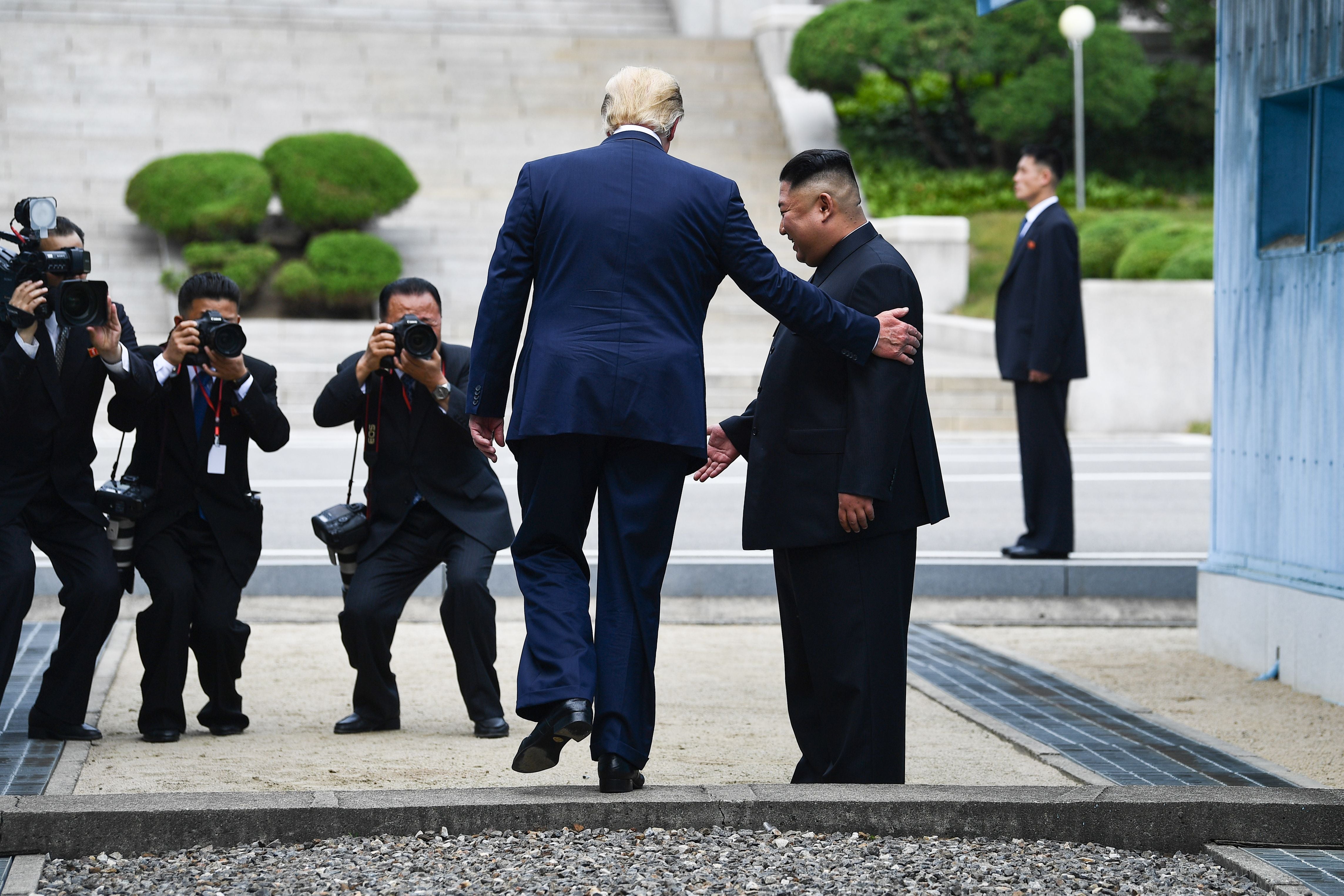We need to talk about Kim: US and South Korea remain far apart on the North as first summit approaches
Joe Biden and Moon Jae-in meet later this month and one topic will dominate - North Korea. Donald Kirk, in Washington, reports on the differences dividing the allies when it comes to dealing with Kim Jong Un

President Joe Biden and South Korea’s president Moon Jae-in are gearing up for a showdown over North Korea when they meet at the White House on 21 May.
The two will surely avoid overt harsh words but differ on the proper application of pressure on North Korea to give up its nuclear programme and the missiles for sending warheads to distant targets, including anywhere in the US. Moon is due here five weeks after Biden hosted his first foreign leader, prime minister Yoshihide Suga of Japan, with which Korea remains at bitter odds over the legacy of Japanese colonial rule.
Ideally, Biden would love to persuade Moon to get along with Japan in hopes of forming a common front against North Korea. Even if they ever come to final irrevocable terms on how much to pay for comfort women kidnapped from Korea to serve Japanese soldiers in the Second World War, however, South Korea and Japan remain far apart on North Korea.
Japan, like the US, believes the North has to get rid of its nukes and missiles before the relaxation of sanctions. Moon, unlike the US and Japan, advocates a “step-by-step” approach to relax sanctions in tandem with the North showing real signs of denuclearisation.
“The Biden administration takes a harder line and more realistic view of the nature, objectives, and strategy of the Kim family regime,” says David Maxwell, a retired army special forces colonel who has done five tours in South Korea. “The foundation of the Biden policy is going to rest on calling for the full implementation of all relevant UN Security Council resolutions toward North Korea.”
That policy is quite the opposite of what Maxwell calls “the appeasement faction” in South Korea. They “will continue to call for early sanctions relief to try to jumpstart negotiations,” he says. “The Biden administration will hold firm and not forfeit any leverage that remains by prematurely lifting sanctions.”
Toward that goal, the US wants to avoid a vaguely worded deal that has no chance of getting the North to halt its nuclear programme. In talks with the South, however, vagueness is vital. How else for Moon to go home thinking serious negotiations with the North are going to happen?
Jake Sullivan, Biden’s national security adviser, signalled this strategy when he stoutly reaffirmed the aim of “ultimately achieving the complete denuclearization of the Korean peninsula”, as then-president Donald Trump and North Korea’s Kim Jong Un agreed in Singapore in June 2018. Sullivan, however, worked around how to achieve that goal.
“Rather than all for all or nothing for nothing,” he said in an exercise in double talk, “a more calibrated, practical, measured approach stands the best chance of actually moving the ball down the field.”
But what does that mean? For the Americans, sidestepping, not moving step by step, is the name of the game the Biden team is playing to gain time on issues that might seem impossible to resolve. Doubling down on the double talk, White House spokesperson Jen Psaki said the US was neither looking for “a grand bargain” nor counting on the “strategic patience” of the Barack Obama presidency, when Biden was vice president.
Moon, sensitive to North Korea’s denunciation of Biden’s call for denuclearization and concerned about his fading popularity ratings with less than a year to go as president, sees reconciliation with Kim as the way to preserve his legacy.

The entire summit process, beginning with Moon meeting Kim on the North-South Korea line at the truce village of Panmunjom in April 2018 and the summit between Kim and Trump two months later, went awry after the failure of the second Trump-Kim summit in Hanoi the following February.
Now the Americans claim to have completed a “policy review” that builds on the vagaries of previous public statements.
Secretary of state Antony Blinken harped on “a very clear policy that centres on diplomacy”, then said it was “up to North Korea to decide whether or not it wants to engage on that basis”.
In a stroke of diplomacy, the American team got the foreign ministers of the Group of Seven nations meeting in London to agree on a policy statement filled with platitudes that won’t please North Korea but do not exclude negotiations.
The ministers were “committed to the goal of complete, verifiable and irreversible abandonment” of North Korea’s weapons of mass destruction, they said, and were “deeply concerned” about North Korea’s human rights abuses.
South Korea’s foreign minister Chung Eui-yong, after meeting Blinken, found the US policy review “realistic and practical” but lamented that Washington does not have a special envoy on Korea "in order to impart an impression to the other side that one is concentrating on the negotiations”.

Victor Cha, who served on the national security council during the George W Bush presidency and now is a professor at Georgetown, said he was “sure the Koreans want the US to lean forward on North Korea,” that is, get into talks. However, he said, unless Kim Jong Un gets serious about negotiations “it’s all moot”.
Bruce Bennett, long-time Korea analyst at the Rand Corporation, conveyed the sense that all the talk between the US and South Korea was devoid of real meaning and the summit would not advance the cause of reconciliation.
“For months President Moon has been pushing the United States to offer concessions to North Korea to get the North to return to the negotiating table, with a particular focus on sanctions relief,” he said, “but the negotiations with North Korea are apparently no longer the US focus and no longer driving US policy.”
Join our commenting forum
Join thought-provoking conversations, follow other Independent readers and see their replies
Comments